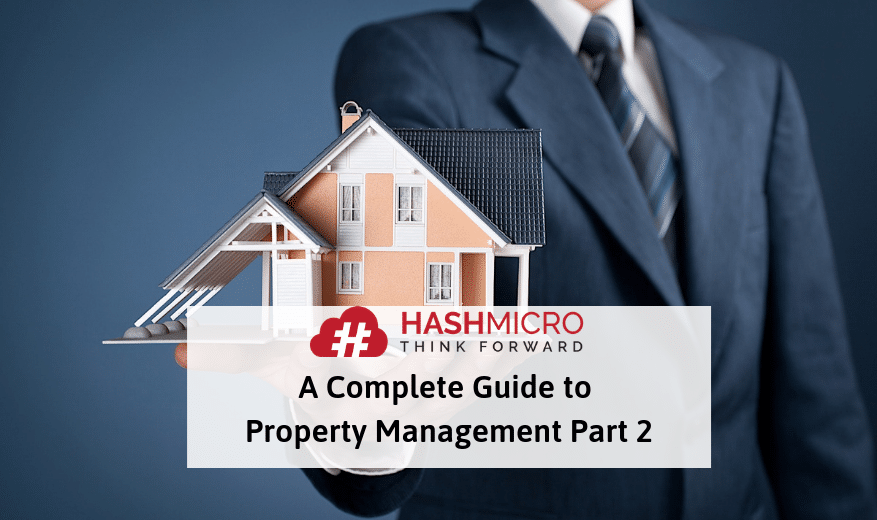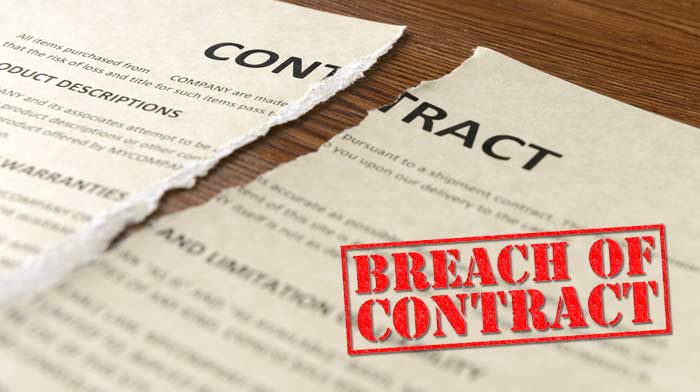Previously, you have learned about how you can manage a real estate business from the first time you buy it to renting or selling it. In this second chapter, you will not only learn about property maintenance and financial management but also how to deal with a breach of contract (something you will never want but could happen in the future). To make it easier for you to understand this article, see the following table of contents.
Table of Content:
Table of Content

Table of Contents for Managing a Real Estate Business
Step 1: Enhance Your Property
Step 2: Determining Prices & Expectations
Step 3: Marketing & Finding Tenants/Buyers
Step 4: Maintaining Your Property
Step 5: Collecting Payments
Step 6: Dealing with a Breach of Contract
Step 7: Managing Cash Flow
Since Steps 1 until Step 3 have been discussed in the previous chapter, let’s start with Step 4!
Step 4: Maintaining Your Property
Maintenance must be conducted regularly, especially if you own a rental property. Once it is occupied by tenants, your role may become more passive, but that doesn’t mean your responsibilities have ended. As an owner, you are the contact point of your tenants. If they need help or have a problem related to the property, you must be there to help them.
Regular visits
Regularly checking your property will give two benefits. First, this will help you maintain good communication with tenants. They will feel more comfortable because you visit them regularly to check the condition of the place they live. Second, regular visits also help you save costs since damage can be prevented earlier. If you only check your property once a year, the chances of damage will be bigger.
Routine maintenance
You must prepare a few important things such as contactable technicians (you might set up a contract with them) and costs for routine maintenance. To speed up the maintenance process, use facility management software.
This automated system helps you record and monitor the condition of your real estate, schedule maintenance, keep the maintenance history, and much more. Provided property/asset management features, maintenance & scheduling contract management, invoices, etc to facilitate work.
Step 5: Collecting Payments
As a property owner, one of your essential tasks is to collect rent or installments. Each landlord has a different method for collecting payments—some still receive checks dropped off or mailed to them, while others use electronic payment methods that are easier, faster, and more effective. However, many property owners still encounter issues such as late payments or payment calculation errors. You can avoid these problems by using the best real estate ERP software.
Real Estate management software helps automate the calculation of installments so you don’t have to do it manually and ensure accurate calculations. It also enables you to set up alerts for invoices, helping you get payments on time. This tool also allows you to instantly create and customize an invoice for each tenant. If late payments persist, then you must take decisive action by enforcing a late fee or perhaps an eviction if necessary. You can use your tenancy contract as a reference if you’re going to take the issue to court.
Note: If you want to raise your rental property rates, you must notify tenants in advance and you should have discussed this since the signing of the contract.
Step 6: Dealing with a Breach of Contract
Not a single landlord ever wants this to happen. However, you must be prepared to face any issues that may occur in the future. The issue we are focusing on here is a breach of contract that constrains an eviction. New property owners may not know what to do when a contract violation occurs, so you must do some research on local laws to ensure that you stick to the applicable rules.
You must file an eviction and undergo the entire court process. Even though the time that it takes to carry out an eviction can be very long, you must notify the tenant and file the eviction. Don’t try to evict the tenant on your own without obeying the rules. Evicting a resident by force (by changing the locks or other personal actions) can be considered a criminal act.
Follow these basic steps:
- Make an official notification for the tenant, including how long they have to fix the problem that violates their lease contract
- File the eviction to court if your notice terms are not met
- Do not accept any payment when you have filed the eviction, as it can nullify the eviction process
- Understand local laws to make sure you don’t break any rules
- Hire a lawyer if you have difficulty understanding the local laws
- Wait for the court decision before carrying out the eviction
Step 7: Managing Cash Flow
Finally, we’ve reached the last step (and the most important one)! Accounting is a mandatory aspect of real estate management. Your cash flow must always be in control. Know your incoming and outgoing cash very well. Make sure you separate your personal and business bank accounts for better financial management. Make a detailed list of routine expenses, such as maintenance costs, taxes, salaries, marketing costs, and so on.
Don’t let your expenses outweigh your income. If this happens, then you are experiencing a loss and this is not good for the sustainability of your real estate business. Thus, make sure that you always get paid on time. Manage your cash flow better using an automated accounting system.
An accounting system provides complete visibility of all your finances, by providing complete and accurate financial reports. It also allows you to reconcile your bank accounts automatically. You can also estimate your income and expenses for a certain period according to your preferences (within six months or a year, etc.)
Conclusion
Congratulations! You have completed this guide and hopefully, from now on you can manage your property better. Although, you may not deal with some of the steps sequentially, here are a few steps you require to make your real estate management better.
- Buy a property and fix it
- Determine prices and expectations
- Advertise your property & find potential prospects
- Perform routine maintenance
- Receive payments on time
- Manage expenses and allocate budgets wisely
Managing a real estate business manually takes a lot of energy, time, and money. Therefore, consider relying on an automated solution like ERP software. This integrated system streamlines your operations by automating various processes such as procurement, lead management, contract management, payment collection, property maintenance, financial management, and much more. For more information about ERP for real estate, feel free to contact us or request a callback by filling out the form below.





































